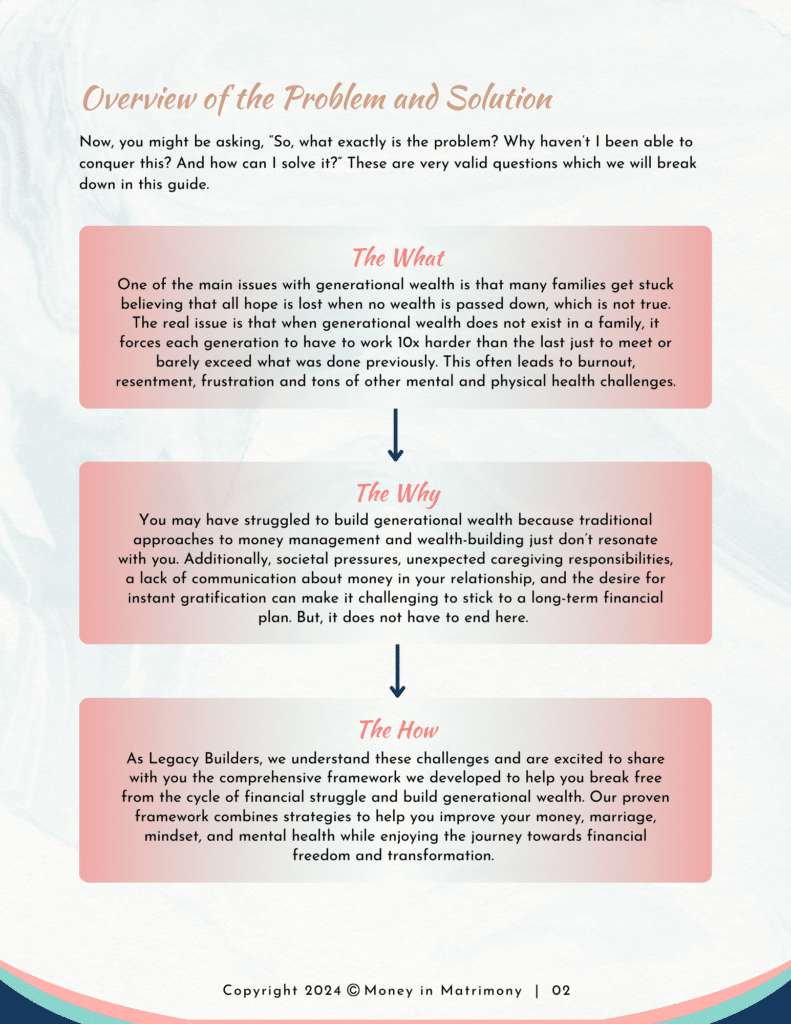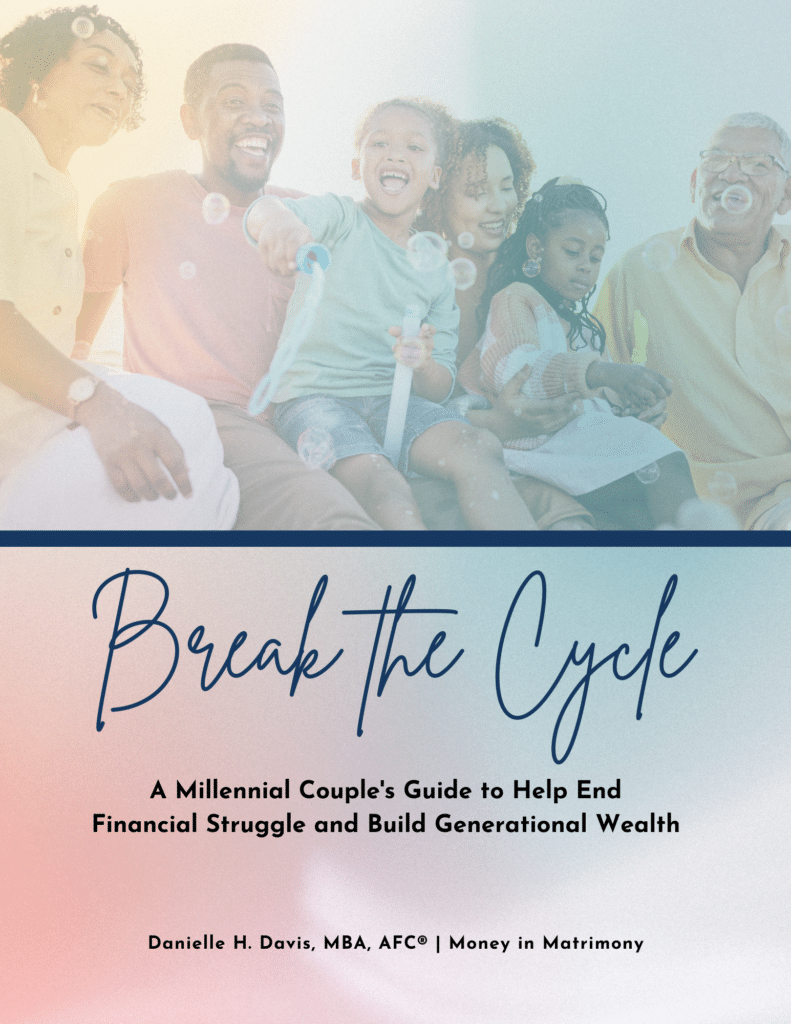Break Financial Trauma: 10 Unconventional Strategies for Millennial Couples
This post may contain affiliate links which means that I will receive a small commission for purchases made through those links, at no cost to you.

Financial trauma can affect individuals and families for generations, creating patterns of financial instability, fear, and unhealthy money habits. For millennial couples, breaking this cycle is not only crucial for their financial well-being but also for building a healthier financial legacy for future generations. The journey toward financial freedom is often fraught with challenges, but millennial couples have the opportunity to approach finances in innovative and empowering ways. Here are ten unconventional strategies to break the cycle of financial trauma and build a brighter financial future.
1. Acknowledge and Heal from Financial Trauma Together
Breaking free from financial trauma requires millennial couples to acknowledge the past and recognize how inherited money beliefs and habits have shaped their current financial situation. Many people grow up in households where money is a source of stress, secrecy, or conflict, and these experiences can lead to unresolved trauma.
Rather than avoiding money conversations, couples should openly discuss their financial histories, fears, and experiences with money. Healing from financial trauma involves forgiveness—both of past generations and oneself—and a commitment to building new, healthier financial habits together.
2. Redefine Your Financial Narrative
Many millennial couples inherit a scarcity mindset from generations before them, leading to financial anxiety, fear of loss, and a focus on survival. To break the generational cycle of financial trauma, couples must redefine their financial narrative. This involves shifting from a mindset of scarcity to one of abundance.
Instead of focusing solely on what’s lacking, start to explore new ways to grow wealth, create opportunities, and shift your mindset toward financial empowerment. Reframing the way you view money as a tool for growth rather than a source of stress is critical for breaking long-held negative patterns.
3. Create a Money Vision for Future Generations
Breaking the generational cycle of financial trauma is not just about fixing the present but also about envisioning a better financial future for the next generation. Millennial couples can start by creating a shared financial vision that includes the well-being of future children and extended family.
This long-term vision might include building generational wealth, setting up trust funds or savings accounts for children, or even creating educational opportunities that weren’t available in the past. When couples align on a shared financial vision, they not only set goals for themselves but also lay the groundwork for a future free from financial trauma.
4. Break Free from Financial Taboo Topics
For many families, money is a taboo topic—something not openly discussed, leading to confusion, ignorance, and financial mistakes. Millennial couples have the power to normalize money conversations by breaking free from the notion that money should be a secretive or uncomfortable topic.
One unconventional strategy is to schedule regular ‘Money Dates’ where couples can openly discuss their financial goals, review their spending, and share their thoughts about money. These conversations help to build financial intimacy, reduce shame around money, and promote a proactive approach to financial decision-making.
5. Incorporate Financial Therapy into Your Relationship
Traditional financial advice often focuses solely on numbers, but for many millennial couples, financial trauma stems from emotional and psychological roots. Financial therapy combines financial planning with emotional support, helping couples address the deeper issues that impact their financial behaviors.
Consider working with a financial therapist to explore the emotional aspects of money. Financial therapy can help couples unearth and process past traumas, build better communication skills, and create healthier money habits that stick. By addressing the emotional side of finances, couples can heal from trauma and make more mindful financial decisions.

6. Leverage Technology for Financial Organization and Growth
Many couples struggle with financial organization, which can compound stress and perpetuate unhealthy money habits. Leveraging modern financial tools and technology is an unconventional but highly effective way to break the cycle of disorganization and financial confusion.
Apps like YNAB (You Need A Budget) or Mint help couples organize their finances, create budgets, and track spending effortlessly. For those looking to grow wealth, investment apps like Acorns and Robinhood make investing accessible for beginners. Utilizing these types of tools can help couples take control of their finances and avoid the chaos that often leads to poor money decisions.
7. Invest in Financial Literacy as a Couple
One of the most powerful yet unconventional ways to break the generational cycle of financial trauma is to actively invest in financial literacy. Many couples come from backgrounds where financial education was limited or non-existent, leading to poor money management skills.
Rather than continuing to struggle with financial decisions, millennial couples can empower themselves by taking financial literacy courses together, reading books on personal finance, or even attending financial workshops. By building a strong financial foundation, couples gain the knowledge and skills they need to make informed decisions, avoid debt traps, and grow wealth.
8. Practice Financial Self-Care
Financial trauma can leave couples feeling overwhelmed and anxious about their financial future. To counteract this, millennial couples should practice financial self-care—prioritizing their mental and emotional well-being when it comes to money.
Financial self-care can include activities such as setting boundaries around spending, celebrating financial wins (no matter how small), and taking breaks from financial discussions when they become too stressful. By focusing on their mental health alongside their financial goals, couples can create a healthier relationship with money and prevent financial burnout.
9. Focus on Generosity and Giving Back
While financial trauma often centers around a scarcity mindset, an unconventional way to break that cycle is by focusing on generosity and giving back. When couples practice generosity—whether through charitable donations, helping family members in need, or volunteering their time—they shift their focus from fear of not having enough to an abundance mindset.
Giving back fosters a sense of financial empowerment and reminds couples that they have the power to make a positive impact, regardless of their financial situation. This mindset shift can be transformative in breaking the chains of financial trauma and creating a legacy of generosity.
10. Challenge Limiting Financial Beliefs Together
Many millennial couples unknowingly hold onto limiting beliefs about money—such as “I’ll always be in debt” or “I’m bad with money.” These beliefs, often inherited from past generations, can limit financial growth and perpetuate unhealthy financial habits.
To break this cycle, couples should work together to challenge and reframe these limiting beliefs. One way to do this is by journaling or having open discussions about the financial stories they’ve been told and actively replacing them with empowering affirmations, such as “I am capable of building wealth” or “We can achieve financial freedom.”
Conclusion: A New Financial Legacy for Millennial Couples
Breaking the generational cycle of financial trauma isn’t an easy task, but by embracing unconventional strategies, millennial couples can start creating a new, empowered financial legacy. Whether through financial therapy, leveraging technology, or simply practicing generosity, these ten strategies provide a fresh approach to healing financial wounds and building a healthier financial future for generations to come.
Remember, it’s not about where you start but how you choose to move forward. With intention, communication, and a shared vision, millennial couples can break free from the past and build a legacy of financial stability, growth, and abundance.








